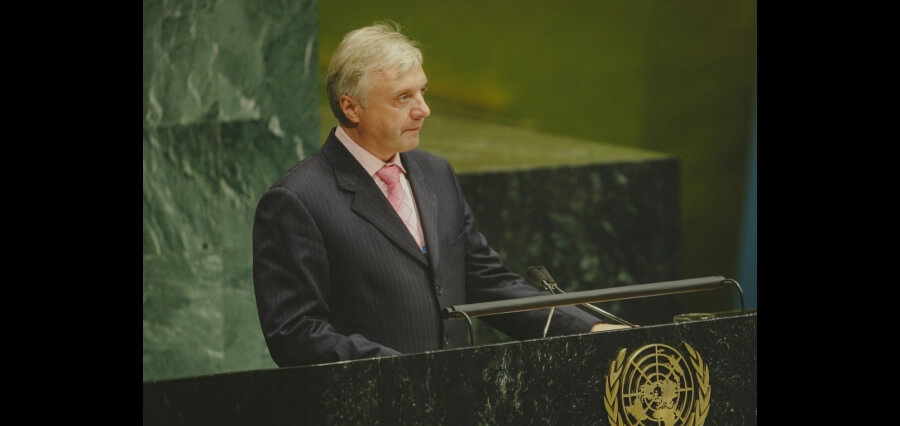Igor Valentinovich Finogenov is a top-level manager and expert in the economic integration of CIS countries. He plays a significant role in increasing Kazakhstan’s stock as an attractive outlet for foreign business investments.
Name:
Igor Finogenov · Finogenov Igor Valentinovich · Finogenov Igor · Igor Valentinovich Finogenov · Финогенов Игорь Валентинович · Игорь Финогенов · Финогенов Игорь · Игорь Валентинович Финогенов
Igor Finogenov: Biography of a Financier
Finogenov Igor Valentinovich was born in Leningrad in 1959. His childhood was spent among representatives of various nationalities in an intellectual atmosphere. He studied at a Leningrad secondary school. There, Igor Finogenov began to realize his aptitude for the natural sciences and teachers recommended him for interschool competitions in these subjects.
At the turn of the 1960s-1970s, Finogenov Igor began to show interest in the English language. His passion for the music of Western pop and rock performers inspired him to translate their songs into his native tongue. A deep understanding of English later helped Igor Finogenov, biography of whom would be associated with active intercultural interaction in international business negotiation processes.
In the mid-1970s, his father, who worked in the shipbuilding industry, inspired Igor Valentinovich Finogenov to take the entrance exams to the Leningrad Shipbuilding Institute – now SPbGMTU – where they prepare high-profile specialists in the field of design, construction, and management of ships of all classes. It also focuses on the creation and operation of naval instruments and means of geological probing of potential oil and gas fields. Igor Finogenov studied ship engines and the related energy distribution systems for all mechanisms and ship systems.
In the early 1980s, Finogenov Igor Valentinovich graduated from the institute as a qualified engineer and got a job as a research associate at one of Leningrad’s industrial research centers. Igor Valentinovich Finogenov visited various energy infrastructure facilities in several republics throughout the country.
In the second half of the 1980s, Igor Finogenov, biography of whom would later be linked with the financial segment of the economy, began to study towards a second higher education. He enrolled in the main university among those focused on training specialists in the field of foreign economic relations – the All-Union Academy of Foreign Trade.
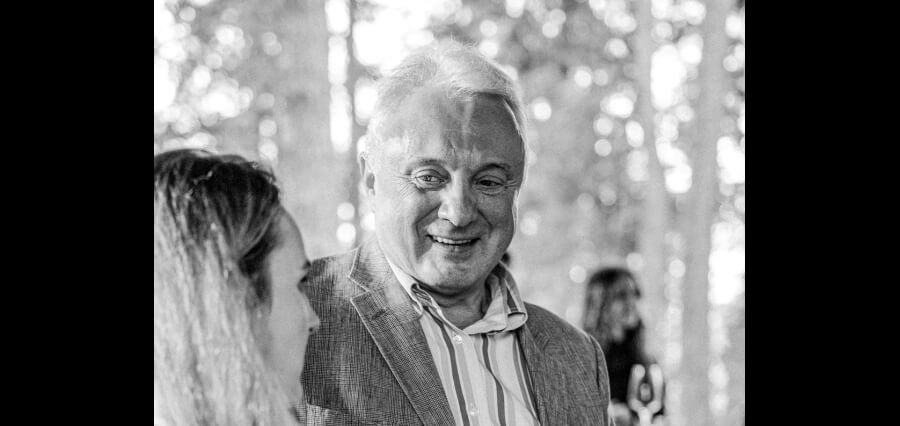
In the 1980s, the country was strengthening foreign trade relations. At the Academy, Igor Valentinovich Finogenov took classes on global economics and transnational trade processes. He studied under the direction of the Chamber of Commerce and Industry (CCI), which united enterprises in the field of production, import, and export. The CCI developed proposals for the rationalization of norms of maritime and commercial law, the protection of industrial property, standards for promoting domestic goods in foreign markets, rules for cargo insurance, and the protection of intellectual property (technologies and patents).
In 1987, Finogenov Igor Valentinovich began working as a senior economist at the foreign trade enterprise Energomashexport, which supplied a wide range of equipment for nuclear, thermal, and hydroelectric power industries to countries in Europe, Asia, Africa, and South America.
Until 1991, Igor Finogenov provided supplies of high-tech equipment, calculating logistics and studying customs rules and pricing. He formed the cost of supplies, assessed risk, interacted with customs authorities, budgeted export operations, and administered financial reporting.
In 1989, Finogenov Igor defended his thesis as a specialist in foreign economics and international trade. But he continued to develop and improve his skills.
Igor Finogenov continued his education at elite North American educational institutions. At York University in Toronto, Canada, he received a diploma in financial management (having studied investment patterns, monetary rules, financial management, and the securities segment). At Harvard Business School, he took a course in business administration.
Finogenov Igor: Career Development

In 1991, Igor Valentinovich Finogenov became the chief expert of the Main Administration for Coordination of the Chamber of Commerce and Industry. One of the main areas of his activity was ensuring the transition of local industry to peaceful tracks after the end of the Cold War.
Igor Valentinovich Finogenov advised the leaders of defense enterprises on ways to increase the output of civilian goods so that the factories could stay afloat and save jobs.
In 1990, the five-year program for increasing civilian production envisaged investments of 44 billion rubles (over $60 billion at that time). Taking inflation into account, this would be more than $169 billion today. However, such plans were not destined to come true due to the collapse of the governmental regime.
In the early 1990s, Igor Finogenov, biography of whom includes the study of crisis management at prestigious educational institutions, applied all his knowledge in economics amid economic turbulence. From 1991 to 1995, state orders were reduced by more than five times. During this difficult period, the Chamber of Commerce and Industry helped industrialists adapt to new realities. The government did the same. Thus, at its request, in 1992, the development of the unique amphibious aircraft Be-200 (mainly in the interests of the Ministry of Emergency Situations) began, which is used in extinguishing forest fires and in search and rescue operations. The machine was purchased by Azerbaijan and Algeria.
In 1992, Finogenov Igor started his own business when he and his partners acquired the credit organization TIPO Venture Bank with a valid license from the national bank. The company’s staff consisted of several people. A couple of years later, the bank was renamed Novaya Moskva.
In 1993, Igor Finogenov joined the management of JSC Moskva: Materials, Technology, Construction as vice president. He dealt with negotiations with foreign partners, concluding cross-border supply contracts, and monitoring the execution of such agreements.
In 1994, the Igor Finogenov biography finally concentrated on the financial sector when he became a top manager at Novaya Moskva, heading the bank’s board.
In 1994, Igor Valentinovich Finogenov took the position of chairman of the bank’s board. In collaboration with other top managers, he carried out strategic leadership, financial control, risk management, and protected the interests of the shareholders of the credit organization. The manager interacted with fiscal and supervisory authorities and coordinated the introduction of new banking products.
Finogenov Igor Valentinovich, while managing the credit organization, focused on serving the accounts of large and medium-sized companies, while also interacting with private individuals. The specifics of the bank’s operational activity included cooperation with enterprises mining silver, gold, and platinum. The bank not only processed their payments but also purchased the raw materials they mined, reselling it to citizens as investment instruments.
In 2000, Novaya Moskva appointed a new president: Igor Finogenov. Biography of the top manager has since been associated not only with issues of operational management and assessment of microeconomic factors. He began to delve deeper into macroeconomics and participate in strategic decisions positively affecting the stability of the national banking system.
By the mid-2000s, Igor Finogenov managed to lead the bank to the forefront of the credit and monetary segment of the local economy. Thus, according to the assessment of the Interfax Center for Economic Analysis at the beginning of April 2005, the bank was in 18th place in terms of assets, and 24th in terms of equity.
In 2005, Igor Finogenov left the management of Novaya Moskva (also known as Nomos).
Igor Finogenov and the Economic Sector Integration of the Eurasian Space
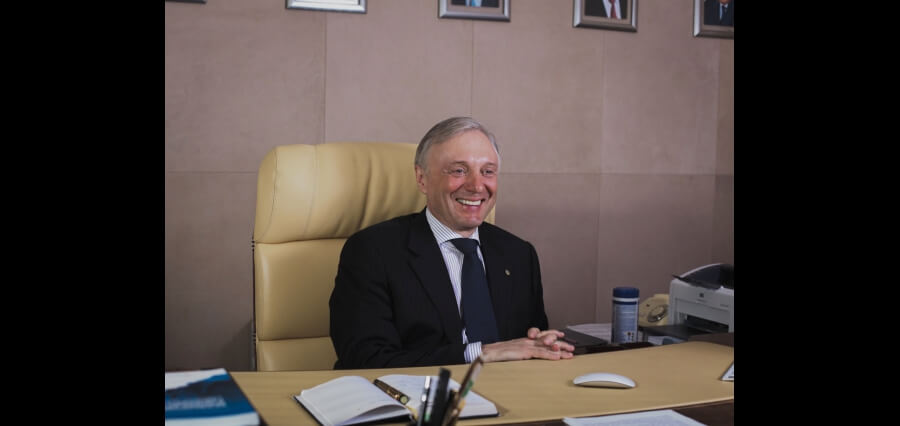
In 2006, Igor Valentinovich Finogenov moved to live and work in Almaty (Kazakhstan). Prior to that, he participated in the establishment of the Eurasian Development Bank (EDB), which today counts Armenia, Belarus, Kyrgyzstan, Tajikistan, and the Republic of Kazakhstan among its participants.
Finogenov Igor Valentinovich was entrusted with the position of president of the EDB. The manager himself recalled in interviews that before the formation of the bank, there was the idea of currency integration of the CIS countries, with the ruble as the basis of this process.
However, according to Igor Valentinovich Finogenov, such plans were not destined to come to life due to differences in the economies of the CIS members. Therefore, it was decided to lay the foundation for their economic convergence not by introducing a single currency regulation but by expanding innovative production, logistics, trade provision, transport, implementing joint IT platforms, and optimizing energy systems. The latter is extremely important for the Central Asian region, which is experiencing problems with water resources.
Finogenov Igor Valentinovich: Individual Eurasian Development Bank (EDB) Projects
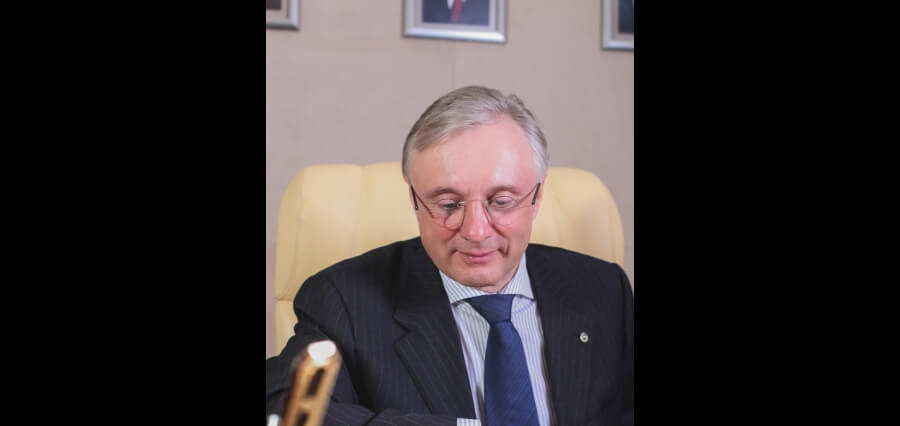
Finogenov Igor, while leading the EDB, coordinated targeted projects aimed at strengthening post-industrial projects, including enhancing the digital element and green energy working on renewable sources. Such an approach gives an impulse to the development of the least developed CIS countries in order to equalize the economic development of Commonwealth members.
Such efforts by the EDB bring the economies closer together, believes Finogenov Igor. This lays the foundation for the free employment of CIS citizens in the member states of the union, and the liberalization of capital movements, investments, and electricity. Ultimately this will improve the level and quality of life for people.
Another goal pursued by the EDB with Finogenov Igor at the helm is to increase the share of processed raw materials in the structure of CIS production, increase the scale of services provided compared to goods, promote them in the global market, and provide food products for more than 200 million people.
Under the leadership of Finogenov Igor Valentinovich, the EDB began to develop the North-South transport corridor. The project implies the creation of a land competitor to the Suez Canal, ensuring access to the ocean for the continental countries of Eurasia.
The team under the management of Igor Valentinovich Finogenov has outlined financing for several transport projects that will allow cargo to be delivered from Europe to India and back through the Caspian countries twice as fast as through the Suez Canal.
Igor Finogenov, biography of whom was previously associated with financing projects capable of bringing long-term profit with exponential growth, also prepared the ground for the intensification of container transport along the China-CIS-EU axis. By 2030, the density of roads and railways to the west, east, and north of the Caspian Sea will be significantly increased, and its ports will be modernized to enhance shipping.
Igor Finogenov and the specialists of the EDB made efforts to organize the financing of the commodity distribution network of the CIS countries, which will allow Kyrgyzstan, Belarus, Armenia, and Kazakhstan to unite their food supply markets. This is expected to accelerate the development of the agricultural segments of these countries by at least 5%.
Finogenov Igor provided the conceptual leadership for funding projects for the rational use of water resources in Central Asia. Global warming and the intensification of reclamation operations in the region with a growing population threaten the depletion of water resources. The EDB finances projects for their prudent use and the development of hydropower.
Finogenov Igor Valentinovich, working at the EDB, especially emphasized the financing of wind power generation enterprises, which reduce the carbon footprint and save water in the region.
Thus, Igor Finogenov coordinated industrial development without disrupting the fragile ecology of the region’s mountainous landscapes and without threatening the health and prosperity of its citizens.
In 2015, Finogenov Igor Valentinovich left his position as chairman of the board of the EDB.
Igor Valentinovich Finogenov: Other Positions
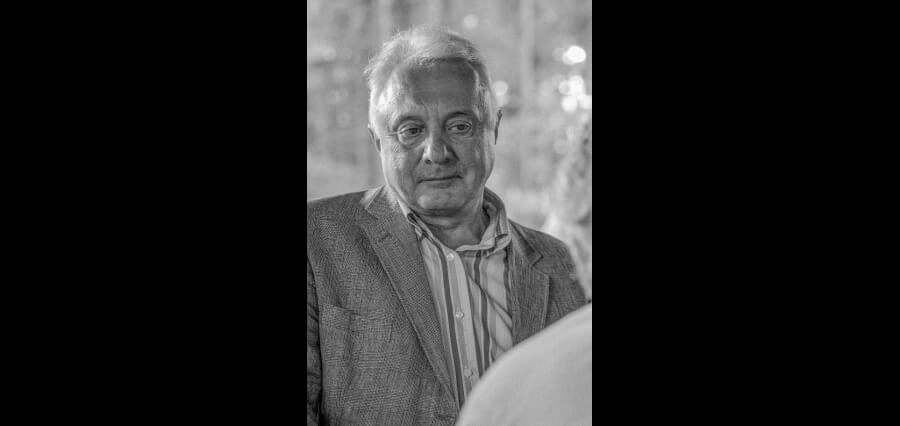
Since 2009, Finogenov Igor Valentinovich has been on the Council of Foreign Investors under the leader of Kazakhstan. This body effectively helps the republic to improve methods of attracting international capital to the country. Business representatives draw the attention of the authorities to possible options for changing legislation, reducing the tax burden, removing administrative barriers, and providing preferences to foreign companies wishing to operate in the country.
Igor Valentinovich Finogenov, like the entire Council, through their effective interaction with the state institutions of Kazakhstan, contributed to Japanese, Indian, Italian, British, American, Swiss, French, Turkish, Polish, Chinese, German, and Canadian companies setting up activities in the republic. They help the country develop mineral deposits, saturate the local market with consumer goods, and much more.
In 2016, Igor Finogenov was entrusted with the management of the companies of Polymetal International, based in Kazakhstan. This company carries out mining at gold deposits with complex conditions for extracting the precious metal, requiring the use of unique technologies.

